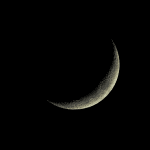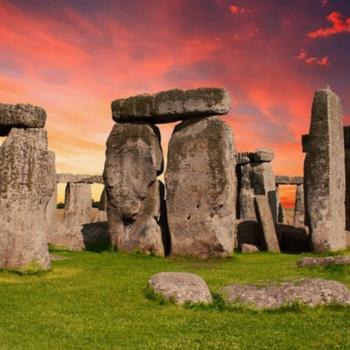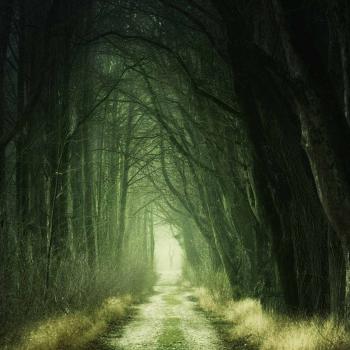The dark night of the soul is a spiritual depression and feeling of disconnect that affects mystics and spiritually minded people at many points in our lives. It’s not something that can be considered a one and done experience, as it is often a cyclical encounter accompanying change and revelation. Anyone who searches out the mysteries of the great Spirit will encounter the landscape of inner desolation. Anyone who is forced out of a rut or circumstance that their soul no longer abides will encounter the same.
There is a strange sort of companionship within this state for those who are polytheist. The symptoms remain there but the ability to hear and connect with certain deities or spirits closer to our level may not be entirely removed. Many times it’s like trying to use a CB radio when the available channels keep changing and it’s mostly quiet on the other end. Every once in a while someone picks up.
Most of the time the small voice of intuition, at least, can still be heard- as it should be. The dark night of the soul provides one lamp: ourselves. No longer can we rely on what others tell us. No longer can we accept vicariousness. It is easy to feel abandoned when faced with these revelations.
It is especially difficult for polytheists outside of established religions with western, abrahamic faith backgrounds. It’s like hitting a plateau in your spiritual life that you can’t climb out of, and there’s nothing to cling to: no holy book to turn to that helps, and oftentimes, no rituals to lean upon.
Finding a way to push through to revelation and growth and out of crisis is most difficult without any established guidance, but it is the only way, and can be done if you’re willing and able to rely upon the guidance that comes from within yourself.
Signs Of the Dark Night of the Soul
Recognizing the dark night of the soul for what it is can be difficult. It’s not entirely separate from what’s going on in the rest of our lives, as everything is interconnected and there is no real difference between the mundane and the sacred. It can very well accompany traditional depression. Some common signs are as follows:
1.) You Need to Be Done Looking Outside of Yourself for Wisdom
Many people get to this point but continue to buy books, invest in seminars, and do just about anything to avoid having to rely on their own spirit to guide them. It’s possible, and common, to hit the point where you feel the need to be in touch with your own guidance and then to quickly turn to books and teachers and so on instead of patiently doing the work. Not getting past this keeps people in an infantile spiritual space with a strong sense of being unfulfilled.
2.) Unpleasant and Repressed Emotions and Memories begin to Manifest
It is a a necessary part of healing, yet it is so tempting to resist and turn away from. This is where polytheists have somewhat of an advantage, depending upon their practice. There are many spirits who will help with and support us during this process. However, it is more common for people to become heavily concerned with the material world instead and turn away entirely from this inner work.
What To Do About It
First of all, stop trying to find answers outside of yourself. No one has them for you. Second of all, in my experience it is helpful to have a strong spiritual practice to rely upon. Again, as polytheists without established religion, this can be difficult to come by. There’s no code, no universal ritual. You may need to experiment and try new things. Consistency, however, is key. What has remained tried and true for me, personally, are as follows:
1.) Prayer
It’s the Catholic in me that recognizes the importance of prayer, ritual, and devotion even when I don’t feel like doing these things. Prayer is a loaded word for many polytheists, so think of it however you like. Establishing a daily prayer practice, especially with a singular prayer that is repeated daily, invites strength to our spirits. (Keep in mind this is from a polytheist perspective, so I see this as a daily prayer toward the gods I work with, ancestors, and the Great Spirit).
2.) Ritual of Meditation and Devotion
To keep the channels clear, daily meditation is essential. There’s as many ways to meditate as there are people. The Dark Night of the Soul prepares us for mindful contemplation. Getting there is hard when we don’t want to sit with ourselves. This is a necessary discipline. A ritual of Devotion can be as simple as lighting a white candle daily and giving thanks, but whatever it is ensure that it is something where you give, not where you ask and take.
Going through the Dark Night of the Soul is an invitation to spiritual discipline that leads to healing, greater wisdom, and a solid foundation of faith, a strong sense of self. It will break down social conformity and rip the masks away from us, forcing us to confront our true selves. It’s important to maintain an attitude or compassion toward ourselves, especially with regards to the aspects we don’t like in ourselves. This process is not an invitation to condemnation. It’s an invitation to transformation.
Featured image via pixabay.
















